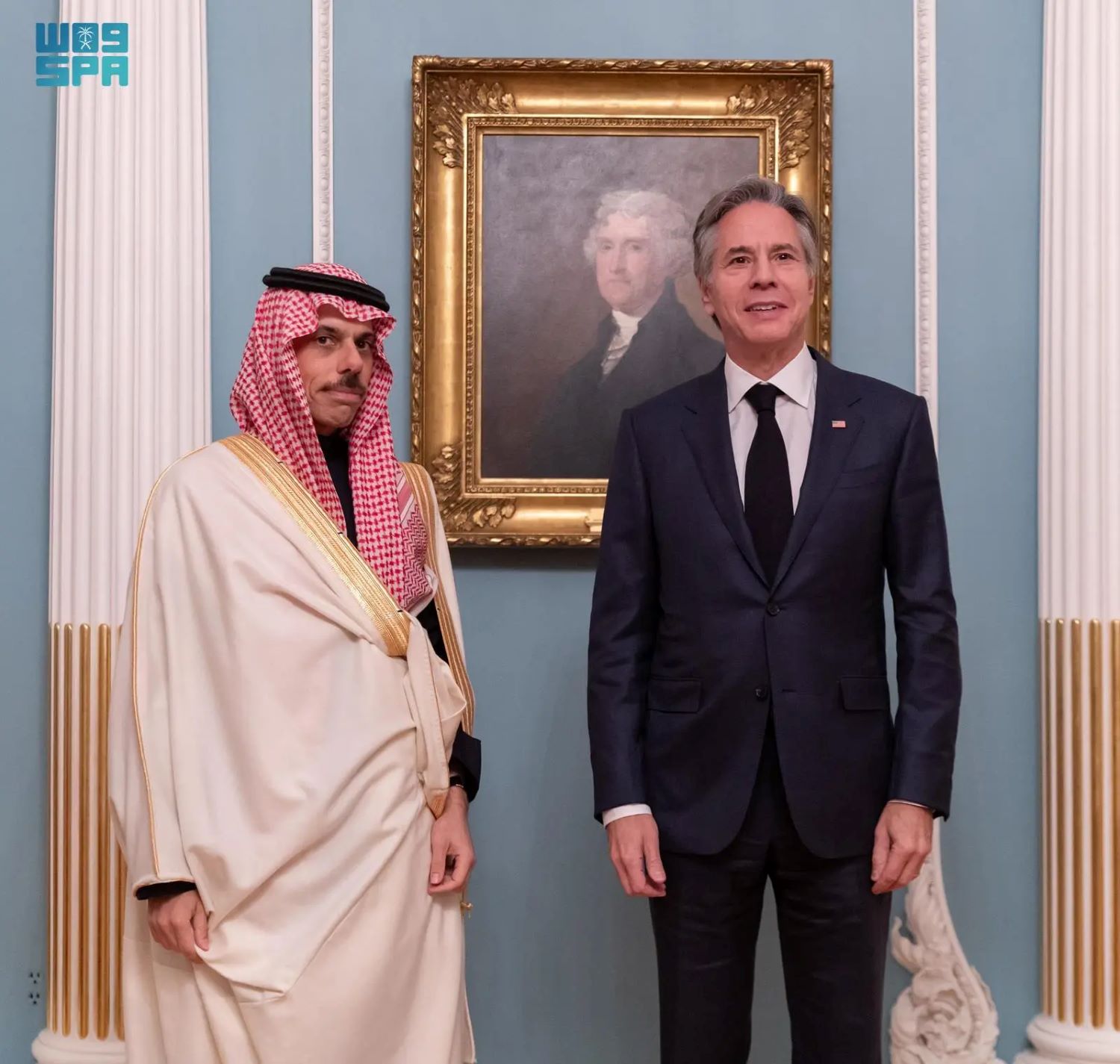Washington, US – A committee of the Joint Arab-Islamic Extraordinary Summit under the chairmanship of Prince Faisal bin Farhan bin Abdullah, Minister of Foreign Affairs of Saudi Arabia have held official discussions with the Secretary of State of the US Antony Blinken, here.
The committee stressed their call on the United States to play a broader role in pressurizing Israel to implement an immediate ceasefire.
The ministers expressed their deep dissatisfaction with the inability of the Security Council to carry out its responsibilities and its failure to adopt a draft resolution calling for an immediate ceasefire in Gaza Strip for the second time due to the United States using its “Veto” right.
The members of the Ministerial Committee renewed their unified position regarding their rejection of the continuation of military operations by the Israeli forces in the Gaza Strip.
The committee renewed their call for the necessity of an immediate and complete ceasefire to ensure the protection of civilians, an end to the humanitarian tragedy in the Gaza Strip, and the lifting of all restrictions that hinder the entry of humanitarian aid into the Strip.
The members of the committee reiterated the need for creating a conducive political climate that leads to a two-state solution and the establishment of a Palestinian state along the lines of June 4, 1967, in accordance with the relevant international resolutions.
The committee rejected compartmentalizing the Palestinian issue and discussing the future of the Gaza Strip separately from the overall Palestinian issue.








